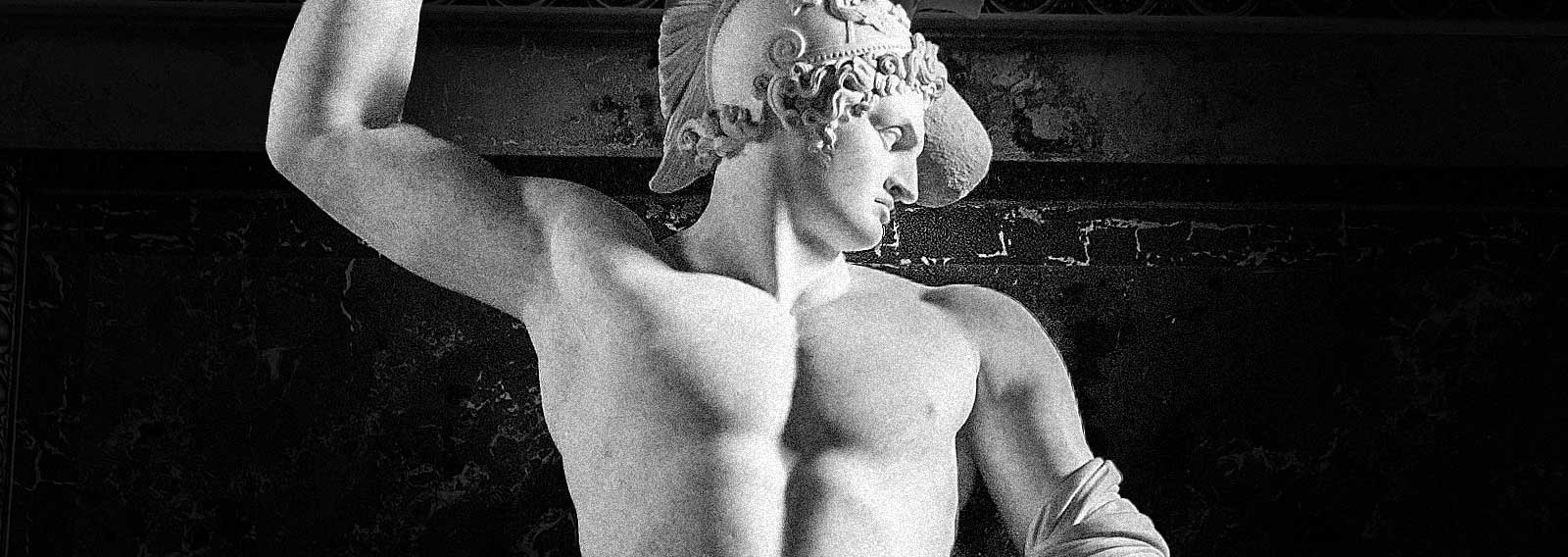Anyone familiar with the works of Dorothy L. Sayers will know where my title comes from. The famous playwright, writer of detective fiction, and lay theologian lived from 1893-1957. She has been featured often on this site, including in this article.
Here I wanted to feature the piece referred to in my title. There are 18 essays found in the book, The Whimsical Christian (Macmillan, 1978 – first published as Christian Letters to a Post-Christian World, Eerdmans, 1969). The second essay found here is “The Greatest Drama Ever Staged” (pp. 11-16).
It was originally published as, “The Greatest Drama Ever Staged Official Creed of Christendom.” It appeared in the London Sunday Times in May 1938, two weeks before Easter. Here I offer most of the masterly essay for you:
Official Christianity, of late years, has been having what is known as bad press. We are constantly assured that the churches are empty because preachers insist too much upon doctrine – dull dogma as people call it. The fact is quite the opposite. It is the neglect of dogma that makes for dullness. The Christian faith is the most exciting drama that ever staggered the imagination of man – and the dogma is the drama.
That drama is summarized quite clearly in the creeds of the Church, and if we think it dull it is because we either have never really read those amazing documents or have recited them so often and so mechanically as to have lost all sense of their meaning. The plot pivots upon a single character, and the whole action is the answer to a central problem: What think ye of Christ? Before we adopt any of the unofficial solutions (some of which are indeed excessively dull)—before we dismiss Christ as a myth, an idealist, a demagogue, a liar or a lunatic—it will do no harm to find out what the creeds really say about him. What does the Church think of Christ?
The Church’s answer is categorical and uncompromising, and it is this: That Jesus Bar-Joseph, the carpenter of Nazareth, was in fact and in truth, and in the most exact and literal sense of the words, the God “by Whom all things were made.” His body and brain were those of a common man; His personality was the personality of God, so far as that personality could be expressed in human terms. He was not a kind of demon pretending to be human; He was in every respect a genuine living man. He was not merely a man so good as to be “like God”—he was God.
Now, this is not just a pious commonplace; it is not a commonplace at all. For what it means is this, among other things: that for whatever reason God chose to make man as he is—limited and suffering and subject to sorrows and death—he [God] had the honesty and the courage to take his own medicine. Whatever game he is playing with his creation, he has kept his own rules and played fair. He can exact nothing from man that he has not exacted from himself. He has himself gone through the whole of human experience, from the trivial irritations of family life and the cramping restrictions of hard work and lack of money to the worst horrors of pain and humiliation, defeat, despair and death. When he was a man, he played the man. He was born in poverty and died in disgrace and thought it well worthwhile.
She continues:
Here we had a man of divine character walking and talking among us—and what did we find to do with Him? The common people, indeed, “heard Him gladly”; but our leading authorities in Church and State considered that He talked too much and uttered too many disconcerting truths. So we bribed one of His friends to hand Him over quietly to the police, and we tried Him on a rather vague charge of creating a disturbance, and had him publicly flogged and hanged on the common gallows, “thanking God we were rid of a knave.” All this was not very creditable to us, even if he was (as many people thought and think) only a harmless crazy preacher. But if the Church is right about him, it was more discreditable still, for the man we hanged was God Almighty.
So that is the outline of the official story—the tale of the time when God was the under-dog and got beaten, when He submitted to the conditions He had laid down and became a man like the men he had made, and the men he had made broke him and killed him. This is the dogma we find so dull—this terrifying drama of which God is the victim and hero.
If this is dull, then what, in Heaven’s name, is worthy to be called exciting? The people who hanged Christ never, to do them justice, accused him of being a bore—on the contrary; they thought him too dynamic to be safe. It has been left for later generations to muffle up that shattering personality and surround him with an atmosphere of tedium. We have very efficiently pared the claws of the Lion of Judah, certified him “meek and mild,” and recommended Him as a fitting household pet for pale curates and pious old ladies. To those who knew him, however, he in no way suggested a milk-and-water person; they objected to Him as a dangerous firebrand. True, he was tender to the unfortunate, patient with honest inquirers and humble before Heaven; but he insulted respectable clergymen by calling them hypocrites. He referred to King Herod as “that fox”; he went to parties in disreputable company and was looked upon as a “gluttonous man and a wine-bibber, a friend of publicans and sinners”; he assaulted indignant tradesmen and threw them and their belongings out of the Temple; he drove a coach-and-horses through a number of sacrosanct and hoary regulations; he cured diseases by any means that came handy, with a shocking casualness in the matter of other people’s pigs and property; He showed no proper deference for wealth or social position; when confronted with neat dialectical traps, he displayed a paradoxical humour that affronted serious-minded people, and he retorted by asking disagreeably searching questions that could not be answered by rule of thumb. He was emphatically not a dull man in his human lifetime, and if he was God, there can be nothing dull about God either. But he had “a daily beauty in his life that made us ugly,” and officialdom felt that the established order of things would be more secure without him. So they did away with God in the name of peace and quietness.
She discusses the resurrection of Christ and concludes:
There is the essential doctrine, of which the whole elaborate structure of Christian faith and morals is only the logical consequence.
Now, we may call that doctrine exhilarating, or we may call it devastating; we may call it revelation, or we may call it rubbish; but if we call it dull, then words have no meaning at all. That God should play the tyrant over man is a dismal story of unrelieved oppression; that man should play the tyrant over man is the usual dreary record of human futility; but that man should play the tyrant over God and find him a better man than himself is an astonishing drama indeed. Any journalist, hearing of it for the first time, would recognise it as news; those who did hear it for the first time actually called it news, and good news at that; though we are apt to forget that the word Gospel ever meant anything so sensational.
Perhaps the drama is played out now, and Jesus is safely dead and buried. Perhaps. It is ironical and entertaining to consider that once at least in the world’s history those words might have been spoken with complete conviction, and that was upon the eve of the Resurrection.
Great truths, indeed.



















